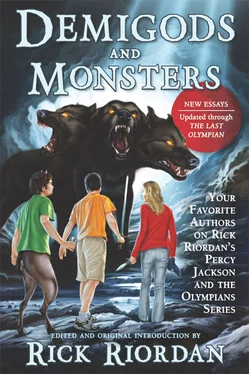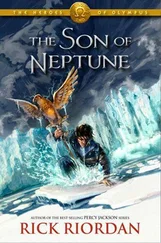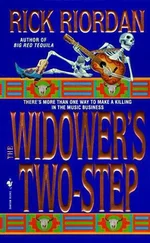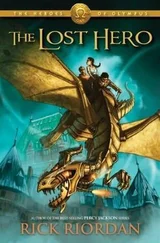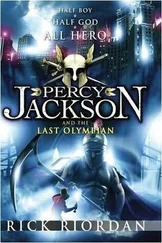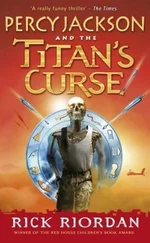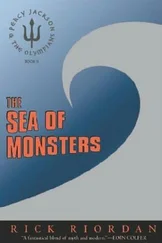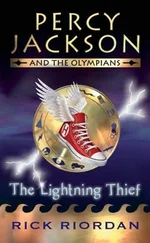Still unconvinced that Artemis might not be the most stable and considerate of bosses? What about the fate of one of Artemis’ most famous nymphs, Callisto? Much like Riordan’s Zoë Nightshade, Callisto was one of Artemis’ favorite nymphs, who upheld her vow of chastity and hunted with the goddess frequently. Unfortunately, she caught the eye of Zeus, Artemis’ own father, and once Zeus’ interest is piqued there often isn’t anything a girl can do. Greek mythology is full of tales of Zeus’ philandering ways and the incredible lengths he goes to in order to seduce the object of his interest.
Although a few legends tell of Callisto welcoming Zeus with open arms, most of the versions have Zeus resorting to trickery. In these versions, knowing that Callisto was completely devoted to both Artemis and her vow of chastity, Zeus appeared to the nymph as the goddess Artemis herself while Callisto lay resting under a tree. Once Callisto’s guard was down, Zeus abandoned his disguise and used force against her. To make matters worse, Callisto ended up pregnant from the encounter. Fearing Artemis’ legendary wrath, Callisto tried to conceal her condition but finally was no longer able to one morning when all the nymphs bathed together in a forest glade. Furious that Callisto betrayed her vow (even though by most accounts Callisto hadn’t done so willingly), Artemis turned her into a bear, which she then hunted down and killed. In other versions, Callisto was still allowed to give birth to her son, Arcas, who in turn encountered his mother in her bear form and killed her. In yet other versions, Artemis was on the verge of killing Callisto when Zeus interfered and placed her in the sky where she can be seen as Ursa Major. (Interestingly enough, Riordan’s Artemis takes credit for placing Callisto in the sky herself.)
Callisto is not an exception to the rule, by the way. Maera, daughter of Proetus, was another of Artemis’ nymphs who had the misfortune to attract Zeus’ roving eye. Whether Maera was willing or not (and my guess is not), Zeus seduced her. Enraged that her nymph had “broken” her vow, Artemis killed her.
So maybe this option of eternal youth and freedom isn’t looking all that attractive anymore. But what if you were a girl living in Ancient Greece, the original stomping grounds of the gods? Females in Ancient Greece, as to be expected, had very different outlooks, expectations of, and rules in their lives. Society (read: men) believed women were weak creatures who needed to be shielded from themselves as well as from the rest of the world. Traditionally, women were appointed a male guardian, usually a father or brother, though in some cases another male relative. This male guardian’s, or kyrios ’, duty was to marry off his female charge, usually when she was in her early teens. The guardian supplied the dowry and the match; the girls had very little or no say in the matter. Love or even liking was not a factor in the marriage.
Once married, a wife’s main function was to reproduce. And reproduce and reproduce. Oh, and she was also supposed to spin and cook and clean. In short, she had to manage the household. But that’s where her sphere of influence began and ended. A Greek wife was rarely allowed out of her own house, except to attend festivals and funerals, where a woman’s presence was permitted, and even then she was never to go unattended (i.e., with a male, for her own protection). A popular belief at the time was that a good wife was an invisible wife. The less said about a married woman, the more honorable she was considered. And this extended even inside her own home. If a husband brought guests home to entertain, a wife had to make herself scarce.
And the possibilities for women who weren’t destined to be wives in Ancient Greek society were even bleaker. Women who weren’t marriageable were often forced to become slaves. If they were slightly more fortunate, they became courtesans or concubines. A concubine was the mistress of her own home, but, like a courtesan, her main function was to entertain men. Their lives and livelihoods depended on how well they could manage this. In fact, all of these occupations—wife, slave, courtesan, or concubine—involved a level of dependence on the good will of men that is unheard of for young women living in today’s democratic societies. Given the hazardous situation of women in Ancient Greece, Artemis’ proposition suddenly seems more appealing. Perhaps most out of all the goddesses, she represents all that traditional Greek women were not allowed to be: free and untamed. In fact, Artemis is a bit of a paradox. On the one hand, her commitment to purity must have been greatly admired by Ancient Greeks; yet she is also untamable and answers to no man. She is truly the eternal wild child who never has to grow up and shoulder the responsibilities that adulthood brings. She never has to compromise herself or conform to any of society’s standards. No wonder she is associated with the moon—completely untouchable, forever unattainable. If offered the option of becoming one of Artemis’ immortal maidens, freed forever from the shackles of marriage or slavery, I think many Ancient Greek women would have jumped on that bandwagon as it careened past them.
Ancient Greek women would have had no concept of the freedoms that are enjoyed, even taken for granted, today. Think about it: When was the last time you questioned your right, your ability really, to walk down the street in broad daylight either by yourself or with friends? Can you even imagine a world where you weren’t free to choose your own friends or what subjects to study in school or whether or not you wanted to play soccer or try out for the swim team or the community theater production? There are myriad choices on our plates today and each one presents an array of exciting opportunities and possibilities.
Both Riordan’s Artemis and the Artemis of Greek myth represent the ideals of freedom and independence, of glorious strength and bravery. And all of these qualities are admirable ones, ones to cultivate in our own lives. We should live by the principles of Artemis and all that she espoused. (Well, we should live by most of those principles. Maybe skip the human sacrifice bit.)
If I were given the choice of eternal freedom, I think I would have to pass. Not because I have a burning desire to kick that soccer ball around the field with a male friend or two, but because the vow’s requirements are just a little too extreme for me. And even though those signs of aging are a long way off, I advise you to follow my lead, and when your time comes, put your faith in Oil of Olay, Lancôme, and Revlon.
They cost a lot less.
* * *
Carolyn MacCullough is the author of five young adult novels. Her latest two are Once a Witch and Almost a Witch , a paranormal series featuring modern day witches, dark spells, and time travel. She teaches creative writing at Gotham Writers, Inc. and lives in New York with her husband and two children. More information about her and her books can be found at www.carolynmaccullough.com.
Dionysus: Who Let Him Run a Summer Camp?
Ellen Steiber
There’s a lot more to Dionysus than a leopard-pattern Hawaiian shirt and a can of Diet Coke. As Ellen Steiber explains, the director of Camp Half-Blood has a long and complex history in the Greek myths. The god of insanity and debauchery is also the god of joy and revelry. Does this mean he’s not as bad as Percy thinks? She’ll let you decide.
Could there be a more bizarre choice for director of Camp Half-Blood than Dionysus?
Rick Riordan has a gift for playing with the Greek myths. He delights in taking the gods and their stories and giving them just enough of a twist to make them completely believable in our world while still retaining the essence of the ancient beliefs. His Dionysus, more safely referred to as Mr. D (names are, after all, powerful things), takes the image of the Greek god of wine and revelry and twists it into a believable contemporary portrait: If you spent most of your time drinking and partying like Mr. D, there’s a good chance that by the time you reached middle age, you too would be overweight, badly dressed, and not care a fig about anything except when you could get your next drink. You certainly wouldn’t be thrilled by having a bunch of “brats” foisted on you. And there’s a good chance you wouldn’t be the most responsible guardian.
Читать дальше
